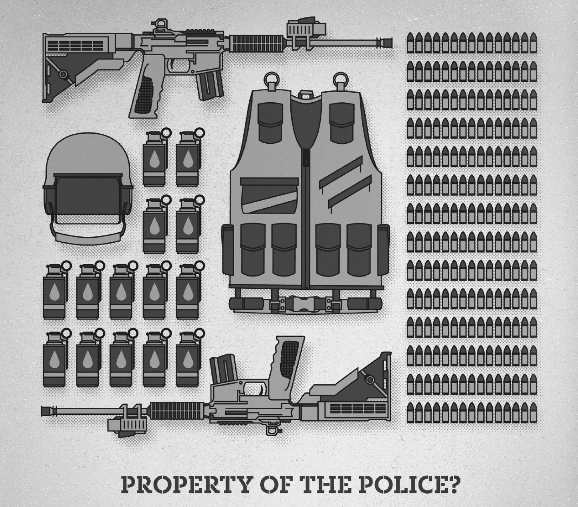Following the tragic earthquake in Haiti on Jan.12, 2010, people across the world have been urged to give. Due to the level of destruction in that area (about three million Haitians have been affected) and the fast growing death toll (as of Jan. 27, there were almost 170,000 confirmed deaths, and over 200,000 estimated deaths), there has been tremendous support from many countries responding to the appeal for humanitarian aid providing funds and rescue, medical and engineer teams.
Donations have also, since then, been a continuously popular form of support. For instance, 24 hours after the earthquake, the Red Cross had already received US$7 million in text message donations. Overall, an approximate amount of US$528-million has been donated to 40 U.S. nonprofit groups in the two weeks following the massive natural disaster.
It is in atrocious times like these that people become particularly sensitive to the human suffering they witness and feel the need to do something about it. Donations are a great way to impact the world, but people should always ensure that the outcome actually meets the intentions behind their act of generosity — that it acts as a relief effort. Therefore, it is important to be aware of where your money will eventually end up.
Since day one of the disaster, numerous organizations providing basic needs and medical aid have made sure to be heard and seen in order to collect funds and meet the needs of Haiti’s distressed population. A person who is willing to donate should remember two important things: which organizations are considered legitimate, and what is the trajectory being taken from the moment your donation has been made to when it reaches its destination.
There are very specific steps to certify that your act of charity will indeed become part of the Haitian recovery effort. According to CharityNavigator.org, a well-regarded non-profit charity evaluator, “The primary step in identifying a proper emergency response organization is to determine whether or not it has a solid track record,” meaning that it has considerable experience in providing disaster relief, particularly in Haiti.
This step is followed by the advice of avoiding donations directly to the Haitian government since it is known to be corrupt; in 2006, the Corruption Perceptions Index ranked Haiti the most corrupt nation out of 163 other countries surveyed. It is also suggested for those who are willing to donate be wary of email solicitations and go directly to the charity’s authorized website.
A press release called “Haitian Earthquake Relief Fraud Alert,” issued by the Federal Bureau of Investigation on Jan. 13, 2010, warned fellow donors and advises on making “contributions directly to known organizations, rather than relying on others to make the donation on your behalf.”
It is also important to demonstrate skepticism if the charity in question claims that 100 per cent of donations will go towards assisting relief victims, since any legitimate organization will have administration costs and fee-processing expenses, though these should be kept as low as possible. Last but not least, a good indicator of legitimacy in a charity is to verify that it has on-the-ground presence in the areas in greatest need for aid because without staff “on the ground,” it will be practically impossible for charities to achieve their aid goals.
CharityNavigator.org has compiled a list of several charities that can be considered “trustworthy,” such as the American Red Cross (ARC), CARE, United States Fund for Unicef and Direct Relief International, to name a few.
For example, as a charity the American Red Cross has all that it takes to convince the international public of its credibility. It is one of the 186 members of the International Federation of Red Cross and Red Crescent Societies, the world’s largest humanitarian organization that provides assistance without discrimination. The Federation not only extends its aid on the grounds of problematic areas, but also conducts relief operations that intend to help victims of disasters. It also does development work and focuses on four core areas: “promoting humanitarian values, disaster response, disaster preparedness and health and community care.”
According to the American Red Cross’ expense breakdown, which shows a proportioned 2008 income statement, their total revenue was US$3,183,957,741, their program expenses reached US$3,303,759,527, their fundraising expenses were US$143,424,304 and their administrative expenses were US$216, 990,153.
According to their website, the ARC is contributing an initial US$1 million from its international response fund and is currently “[providing] tarps, mosquito nets and cooking sets for approximately 5,000 families” in Haiti and helping the injured who may need blood. They have also scheduled disaster management specialists to be on the ground in order to coordinate relief efforts.
The Canadian Red Cross’ website provides clear details on the management of donations received for appeals. All donations, whether they are private, corporate or government in nature are “held within a fund and safeguarded until disbursed for the purposes for which they were donated.” All funds, except the sums needed to cover administrative and operational costs of the Red Cross in order to perform relief efforts are distributed “in a timely manner to assist those in need.”
It is of crucial importance to determine whether or not our donations are achieving a positive action. One cannot afford to place their money in unsafe hands, especially when this money could be helping the lives of many Haitians in deep need of assistance. It is a matter of determining what is the best way to make a difference, and for this one should be cautious and aware.
Sarah Khalil is the International Coordinator at the Manitoban.





If you are in the corner and have no cash to go out from that point, you would need to take the mortgage loans. Because it should help you unquestionably. I get commercial loan every time I need and feel great because of that.